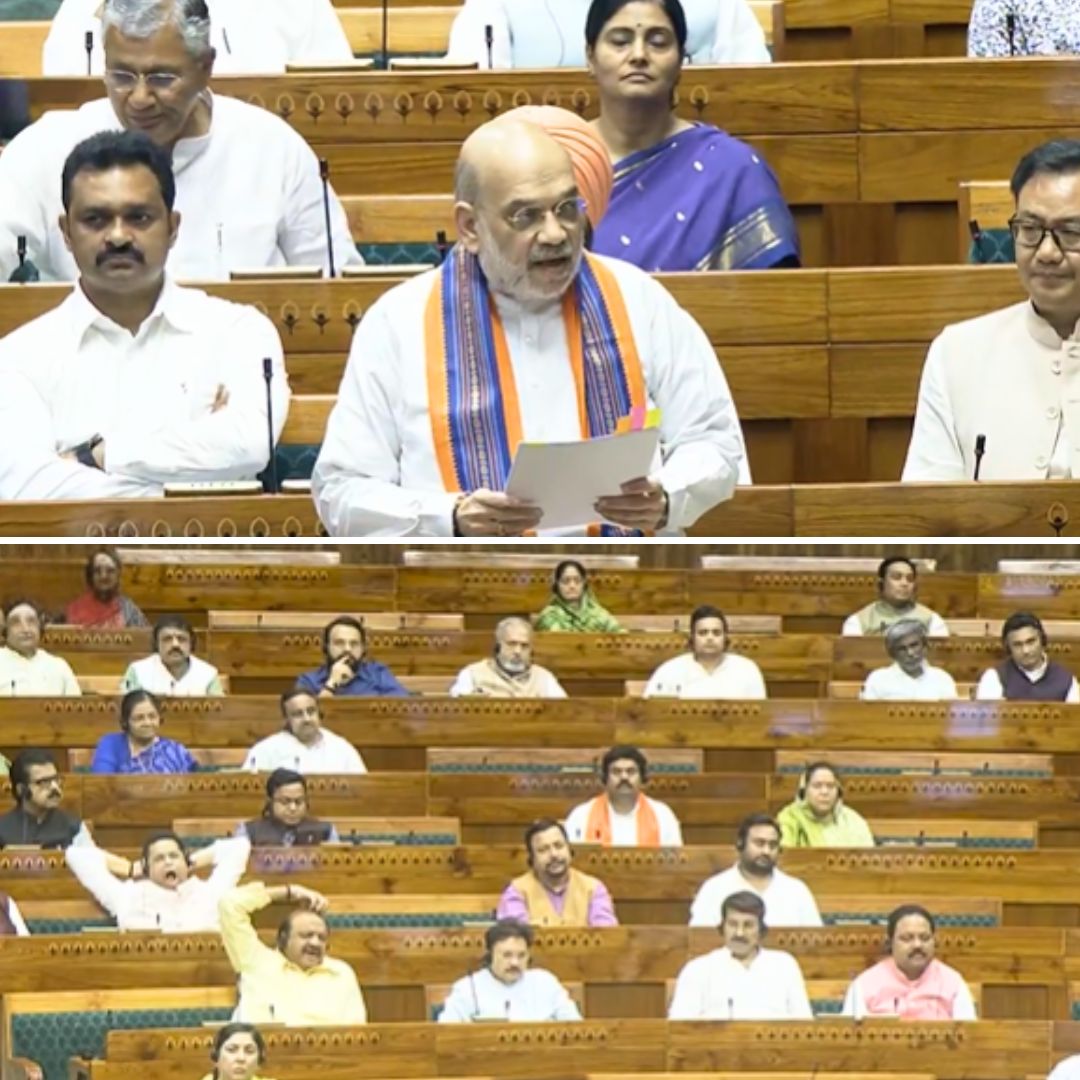During the Lok Sabha session on Wednesday, opposition MPs vehemently protested by tearing copies of three significant bills and throwing paper bits at Union Home Minister Amit Shah. The bills presented were the One Hundred and Thirtieth Amendment Bill, 2025, the Government of Union Territories (Amendment) Bill, and the Jammu and Kashmir Reorganisation (Amendment) Bill.
The Centre strongly condemned the unruly conduct, urging MPs to respect the people’s mandate and engage through debates rather than disruption. The bills aim to allow the removal of key ministers, including the Prime Minister, if arrested for serious crimes after 30 consecutive days in custody.
Opposition parties accused the government of pushing towards a “Police state,” with members raising concerns over separation of powers and democratic rights. The government proposed referring these bills to a Joint Parliamentary Committee (JPC) for detailed examination.
Opposition Accuses Govt of Creating a Police State
The opposition expressed deep apprehension about the bills, arguing that they undermine the separation of powers and threaten the democratic right to elect governments. MP Assaduddin Owaisi stated the bills give executive agencies unchecked powers, likening the move to establishing a “Police State.”
Opposition members fear the bills could be used against elected officials based on flimsy allegations, thereby destabilising democratically elected governments. The Centre responded firmly, with Union minister Kiren Rijiju emphasising that disrespecting democracy and the people’s mandate would not be forgiven by citizens and urged for constructive engagement rather than chaos during parliamentary sessions.
Key Provisions of the Bills and Political Backdrop
The legislative proposals seek to amend Articles 75, 164, and 239AA of the Indian Constitution to allow ministers at the Union, state, and Delhi government levels to be removed automatically if they remain in custody for 30 consecutive days for crimes punishable by imprisonment of five years or more. Currently, there are no legal provisions specifically allowing the removal of a Prime Minister or ministers under such circumstances.
Alongside the amendment bill on the Constitution itself, the Government of Union Territories (Amendment) Bill and the Jammu and Kashmir Reorganisation (Amendment) Bill propose changes that could affect governance in Union Territories, including Jammu and Kashmir.
The mounting political tensions and sharp disagreements around these bills have led to this intense confrontation in Parliament. Amit Shah moved a motion to refer the three bills to a Joint Parliamentary Committee for further scrutiny, signalling the government’s openness to detailed debate despite the protests.
The Logical Indian’s Perspective
The Logical Indian believes democracy thrives on robust but respectful discourse. While dissent and protest are vital components of democracy, Parliament should remain a space for orderly, reasoned debates that uphold public trust and democratic values.
Acts of disruption risk undermining the very foundation of governance and weaken faith in democratic institutions. It is essential that lawmakers balance their right to protest with the responsibility to conduct themselves with decorum and engage constructively.
Home Minister @AmitShah introduces following 3 bills in LokSabha
— SansadTV (@sansad_tv) August 20, 2025
1. The Constitution (One Hundred & Thirtieth Amendment) Bill, 2025.
2. The Government of Union Territories (Amendment) Bill, 2025.
3. The Jammu & Kashmir Reorganisation (Amendment) Bill, 2025 pic.twitter.com/zNSM7sP6Q2












